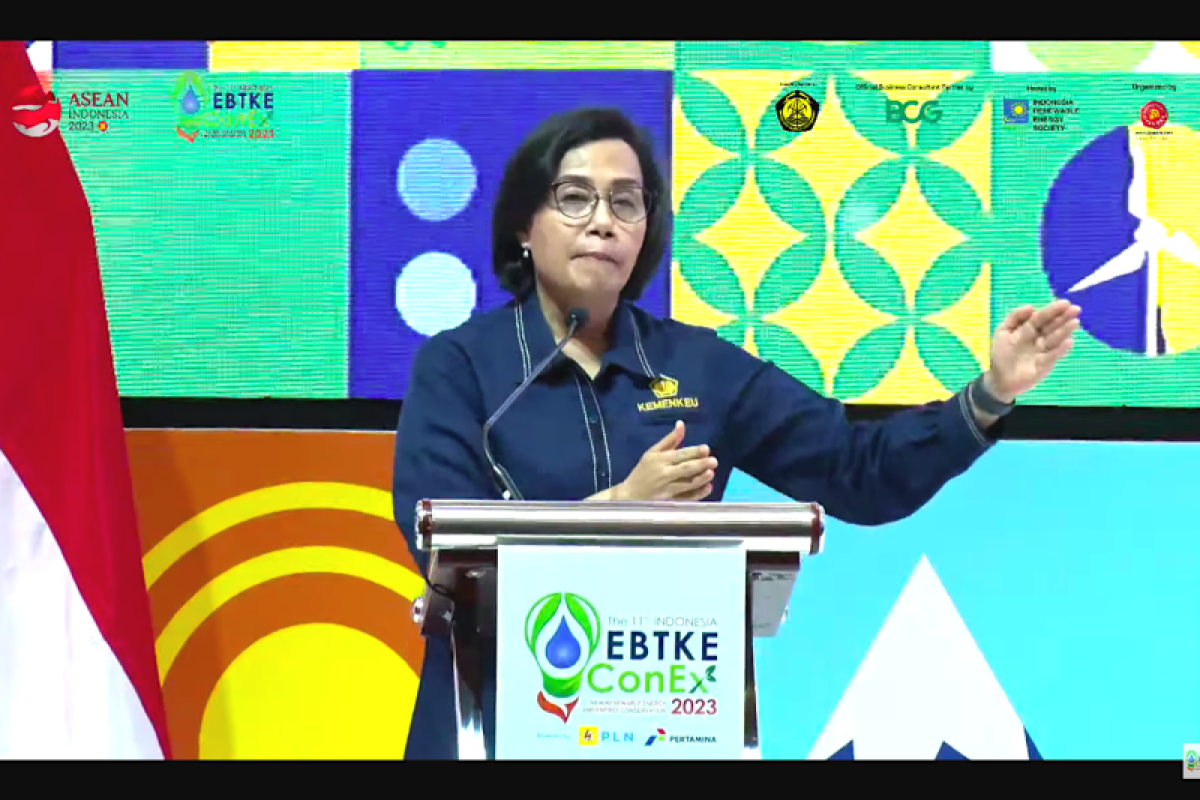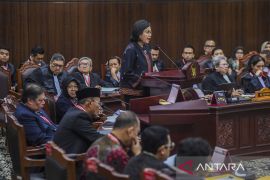"Indonesia's greenhouse gas emissions also tend to increase. Every year, it (the greenhouse gas emission level) has increased by 4.3 percent, since 2010," she noted at the 11th Indonesia EBTKE Conference and Exhibition 2023 themed "From Commitment to Action: Safeguarding Energy Transition Towards Indonesia Net Zero Emissions 2060," which was followed online from Jakarta on Wednesday.
According to her, climate change is expected to have a devastating impact. However, Indonesia, as a country, must continue to carry out development and that will increase energy consumption.
Development itself could help encourage the community to become more prosperous, which would mean helping those who previously did not have a house to become homeowners, or bringing about a change in electricity consumption from 450-volt amperes (VA) to 1,200 VA or 2,000 VA. With 78 million households, energy demand will continue to increase, she noted.
"The contradiction lies in the way we continue to satisfy the ever-growing demand with an energy supply that should not exacerbate greenhouse gases, which increase 4.3 percent every year. This is a challenge for all of us," she highlighted.
Indrawati said that the government, the industry sector, and the community must be involved in overcoming these challenges.
According to a report released by the Intergovernmental Panel on Climate Change (IPCC) in March 2023, the Earth's temperature has risen 1.1 degrees Celsius since the industrial revolution.
This means it is only a little away from reaching the 1.5 degrees Celsius threshold, crossing which will have an extraordinary impact on human life and sustainability on the planet, she explained.
According to the 2023 Global Risk Report published by the World Economic Forum, in the past 10 years, 6 out of the 10 biggest challenges faced by the global community have been related to climate change.
"This warns us that climate change is not just an academic issue or an interesting topic to be discussed, but is the biggest risk for humanity and also for all countries," the minister stated.
She added that the implications of climate change in low-income and developing countries will be more significant and devastating if the challenge is not successfully addressed.
Related news: Climate change threatens food security: BMKG
Related news: Ministry pursues collaboration to mitigate climate change
Related news: Global cooperation essential to face climate change: Finance Minister
Translator: M Baqir I A, Resinta S
Editor: Sri Haryati
Copyright © ANTARA 2023












